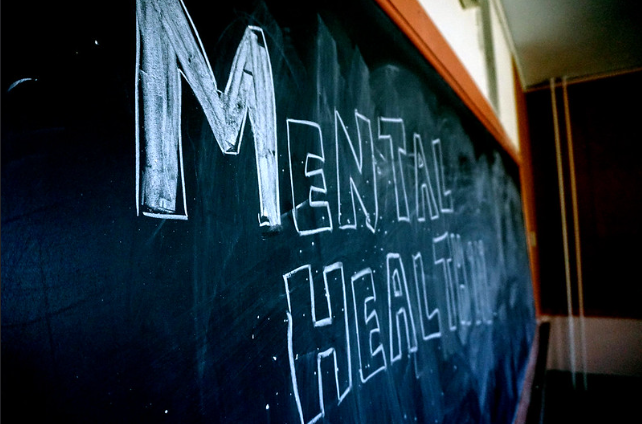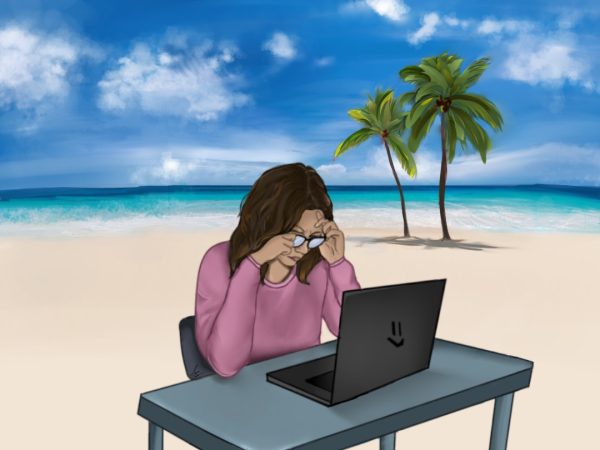OPINION: High schools play critical role during Mental Health Awareness Month
As the school year ends and students start to abandon their school backpacks for beach bags, many begin to notice that although winter has ended, their seasonal depression has not. The month of May is Mental Health Awareness Month, and it is essential for schools to help students who struggle mentally, this month especially.
Schools are the most important resource students have for mental health because of the large impact they have on the conditions of students’ day-to-day lives. And unfortunately, not enough is being done to help those struggling. In 2020 from ages 12 to 17, 1 in 6 students suffered from major depressive disorder according to the National Alliance on Mental Illness. In the United States, 3 million people reported having serious thoughts of suicide, with suicide being the second leading cause of death among those aged 10-14 and the third leading cause of death among those aged 15-24 in the United States. In the U.S., millions of people are deeply affected by mental illness every year. The most common mental illnesses are anxiety disorders, mood disorders and psychotic disorders. NAMI estimates that one in five people live with some sort of mental disorder or disease. Despite the fact that 14 is the average age for early signs of mental illness, most do not seek help until adulthood.
These statistics are very disturbing, especially since schools have had a poor impact on students’ mental health for decades. The pressure of school has pushed some students to their limits, resulting in suicide or other bad coping mechanisms such as drug and alcohol use, self-harm, violence, running away, gambling addictions and many more.
Many teachers and students lack the education of being able to recognize signs of developing mental health problems, which needs to be taught in school.
“The best thing the teachers can do is connect with their students not just as students but as people who deserve the respect and care of teachers,” West Essex psychologist and case manager Michelle Gonzalez said. “Teachers connecting and being aware of their students would be a massive help.”
High school students can have poor mental health for a variety of reasons, including social stress, academic pressure, family problems, bullying and changes in hormones. Exams such as midterms, finals and AP testing do not help with the ongoing issue. High school students are placed with many new expectations that are difficult and overwhelming to keep up with.
It’s important for schools to recognize these challenges and provide resources to help students cope. They can provide resources such as counseling services, mental health education and access to mental health professionals. They can also create a supportive and inclusive environment that encourages students to seek help when they need it. More important, they can also work to reduce stress by providing healthy food options, promoting physical activity and encouraging students to take breaks when they need to. By addressing mental health in schools, students can develop the skills and strength they need to succeed academically and socially.
“More recently, we’ve invested in a program that really has contributed to the SEL (social-emotional learning) of the students,” Michelle Gonzalez said. “And that has required staff to be on board and understand the social-emotional needs.”
In West Essex, there are many precautions taken for mental health that many do not know about, and the school does a poor job of advertising these precautions.
“Lots of students don’t realize the level of support that’s here, and it’s because it’s not really necessarily broadcasted,” Gonzalez said. “ Generally guidance counselors are our best place to start off, but we also have a student assistance counselor. We have a full child study team that has two school psychologists and a social worker. We have licensed therapists through a Care Plus program that we offer as an additional resource for students who may need it or its appropriate for.”
Mental health problems are common, and it’s important to ask for help. By teaching students about mental health, the stigma surrounding it will reduce, and encourage people to seek help when needed.
Photo Credit: “Mental Health 101” by Edgar Languren is licensed under (CC0 1.0)






